My diary
First Day with Panua
Yesterday was our first day with the ministry Panua. We spent the morning at the offices learning about the program. It is very well done and organized. The staff: Florence, Patrick and Alfontes do a remarkable job in running this ministry. What struck me as the "sweet spot" for this ministry is the power that comes from the smaller numbers they work with in the ministry. There are only 160 students impacted by the ministry. The need is overwhelming which can be a challenge to want to do more, to help more children, but the intimacy and relationships that are developed and maintain really make the program work.
To sum up what I learned about the ministry quickly is they work with 18-22 year olds (give or take a few years) who are called OVC: Orphans and Vulnerable Children. You are still considered a child in Kenya till you are past 22. Having 2 sons in college I can't tell you how much sense this makes! An OVC is someone who either their parents have died, are terminally ill, are no where to be found. Perhaps they are living with elderly relatives who they have to provide for, or they are taken in by Good Samaritans who need them to provide to have a place to live. They are living day to day. Panua works with the local community leaders and the government to identify the OVC's. Then through an interview process selects them to be part of Panua. It is a three year program that teaches them life skills: hygiene, healthcare, leadership, business, finances, and more. They choose a skill and/or trade and are "attached" to someone to learn how to do the trade. It seemed very similar to a college internship. After 3 years they graduate and begin to give back to the community.
Two things that separate this group from other ministries I have seen is Florence, a social worker, meets with each of the students early on in the program and for lack of a better term gives them an IEP, which I know my teacher friends understand. This is an assessment of where each child is at with life skills and learning. They then develop a plan to help them grow. I also was very impressed with the part of the program where they put each child into a small learning community. The community is an accountability group. They select leaders: Chair, Vice Chair, Sec, and Treasurer. They meet once a week to share where they are at with the program, encourage and support one another. They register with the government as legal entity which allows them to open a bank account. They have to have a group project to raise money and they have to create a savings program. Each person in the group is to earn a wage, secure shelter, and begin to save. What was most impactful to me was they are told to give themselves a name. We wouldn't think twice in the US about giving our group, our team a name. For these kids it is huge. It is the first time they begin to understand a sense of identity and with working together. The groups become family. In fact yesterday at one of the groups we learned that the group treasurer couldn't not be there for her mother had died and the funeral was later this week in another town. The group was trying to figure out how to go to the funeral to support their friend. So we made sure they had the money for the 3 hour bus trip. There is power in small groups.
The afternoon was spent meeting with two of the small groups. One of the groups cooked lunch for us and shared with us where they were in the program. It was impressive to see these young men and women discovering hope. One group shared that they had saved 45,000 shillings since January as a group. They keep a record of how much each individual has, but as a group they were at 45,000. If my math is correct that is $450, which goes a long way in Kenya. I am curious as to how many 18-22 year olds in the US saved $450 over the first 3 months. Every person shared what Panua had taught them, and what their plans were. All of them in one way or another mentioned how Panua gave them hope. They all had something they didn't have 3 years ago, a future.
I had a chance to speak with Salome, who has opened a business of jewelry, beads, and other items. She works very had and is quite the entrepreneur. Josephat is the leader of the group that saved 45,000 shillings. He spent about 15 minutes with me going over his records: who attends which meetings, how often they come, what they are working on, how much each has saved, etc.... Both Salome and Josephat three years ago were living day to day on the charity of others, or what they could scrape by. Today they have hopes and dreams for tomorrow. The best part about Panua is it is helping these children discover hope.
Some other highlights from the day:
I loved seeing all the water haulers with the donkeys and carts carrying water to different homes. As someone who has supported clean water for years you can really see the need for that.
The younger children get really wide-eyed when they see the white people.
Roy's tattoo's have been quite the conversation as to why does he have them. I also appreciated how he makes sure to throw me under the bus and tell them I have them too.
I am so appreciative of all the soccer I have watched over the years. That is a big sport here and they all watch Barclay's, La Liga, Series A, or Bundesliga. This is been a great in road to start conversations.
Panua April 11, 2016
Naivasha, Kenya
First Day with Panua
Yesterday was our first day with the ministry Panua. We spent the morning at the offices learning about the program. It is very well done and organized. The staff: Florence, Patrick and Alfontes do a remarkable job in running this ministry. What struck me as the "sweet spot" for this ministry is the power that comes from the smaller numbers they work with in the ministry. There are only 160 students impacted by the ministry. The need is overwhelming which can be a challenge to want to do more, to help more children, but the intimacy and relationships that are developed and maintain really make the program work.
To sum up what I learned about the ministry quickly is they work with 18-22 year olds (give or take a few years) who are called OVC: Orphans and Vulnerable Children. You are still considered a child in Kenya till you are past 22. Having 2 sons in college I can't tell you how much sense this makes! An OVC is someone who either their parents have died, are terminally ill, are no where to be found. Perhaps they are living with elderly relatives who they have to provide for, or they are taken in by Good Samaritans who need them to provide to have a place to live. They are living day to day. Panua works with the local community leaders and the government to identify the OVC's. Then through an interview process selects them to be part of Panua. It is a three year program that teaches them life skills: hygiene, healthcare, leadership, business, finances, and more. They choose a skill and/or trade and are "attached" to someone to learn how to do the trade. It seemed very similar to a college internship. After 3 years they graduate and begin to give back to the community.
Two things that separate this group from other ministries I have seen is Florence, a social worker, meets with each of the students early on in the program and for lack of a better term gives them an IEP, which I know my teacher friends understand. This is an assessment of where each child is at with life skills and learning. They then develop a plan to help them grow. I also was very impressed with the part of the program where they put each child into a small learning community. The community is an accountability group. They select leaders: Chair, Vice Chair, Sec, and Treasurer. They meet once a week to share where they are at with the program, encourage and support one another. They register with the government as legal entity which allows them to open a bank account. They have to have a group project to raise money and they have to create a savings program. Each person in the group is to earn a wage, secure shelter, and begin to save. What was most impactful to me was they are told to give themselves a name. We wouldn't think twice in the US about giving our group, our team a name. For these kids it is huge. It is the first time they begin to understand a sense of identity and with working together. The groups become family. In fact yesterday at one of the groups we learned that the group treasurer couldn't not be there for her mother had died and the funeral was later this week in another town. The group was trying to figure out how to go to the funeral to support their friend. So we made sure they had the money for the 3 hour bus trip. There is power in small groups.
The afternoon was spent meeting with two of the small groups. One of the groups cooked lunch for us and shared with us where they were in the program. It was impressive to see these young men and women discovering hope. One group shared that they had saved 45,000 shillings since January as a group. They keep a record of how much each individual has, but as a group they were at 45,000. If my math is correct that is $450, which goes a long way in Kenya. I am curious as to how many 18-22 year olds in the US saved $450 over the first 3 months. Every person shared what Panua had taught them, and what their plans were. All of them in one way or another mentioned how Panua gave them hope. They all had something they didn't have 3 years ago, a future.
I had a chance to speak with Salome, who has opened a business of jewelry, beads, and other items. She works very had and is quite the entrepreneur. Josephat is the leader of the group that saved 45,000 shillings. He spent about 15 minutes with me going over his records: who attends which meetings, how often they come, what they are working on, how much each has saved, etc.... Both Salome and Josephat three years ago were living day to day on the charity of others, or what they could scrape by. Today they have hopes and dreams for tomorrow. The best part about Panua is it is helping these children discover hope.
Some other highlights from the day:
I loved seeing all the water haulers with the donkeys and carts carrying water to different homes. As someone who has supported clean water for years you can really see the need for that.
The younger children get really wide-eyed when they see the white people.
Roy's tattoo's have been quite the conversation as to why does he have them. I also appreciated how he makes sure to throw me under the bus and tell them I have them too.
I am so appreciative of all the soccer I have watched over the years. That is a big sport here and they all watch Barclay's, La Liga, Series A, or Bundesliga. This is been a great in road to start conversations.
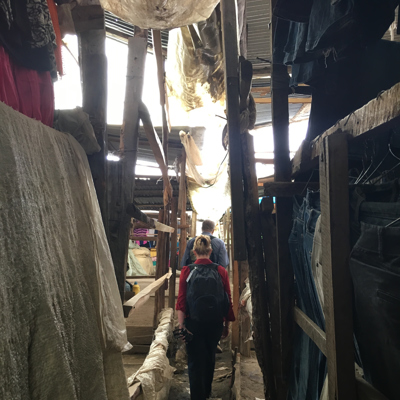
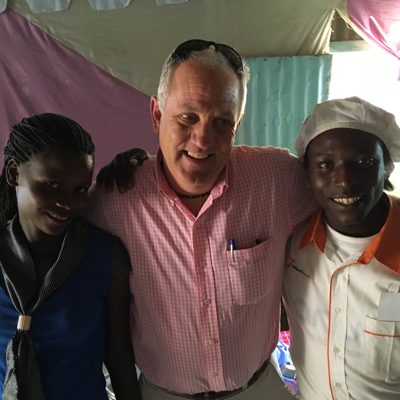
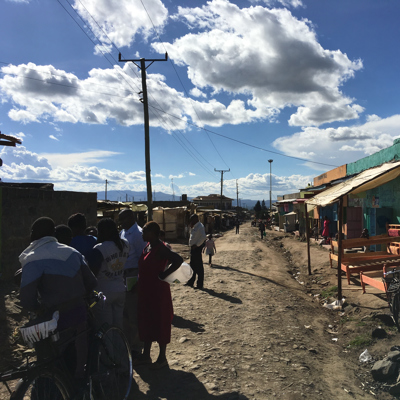
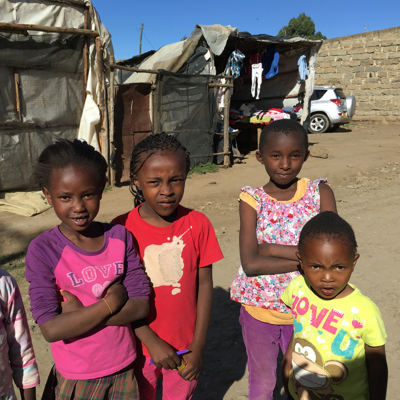
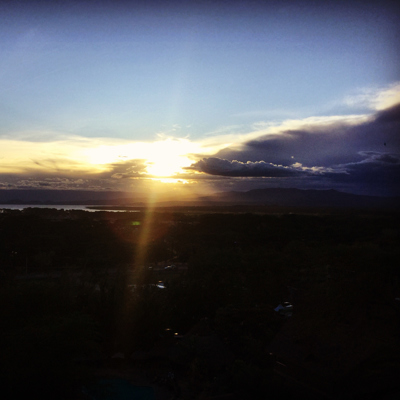
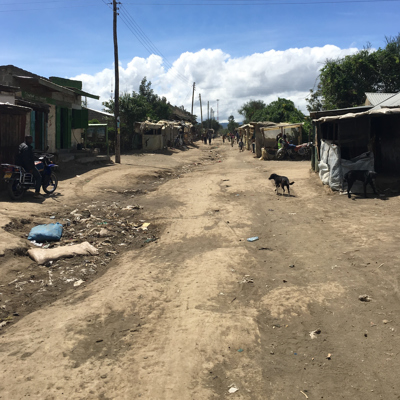
The hospitality and friendliness of the Kenyan people is as wonderful as I was told it would be.
I have struggled with the dirtiness of the areas we have been in, and some of the smells that come with the incredible poverty we have seen. I am extremely grateful for indoor plumbing and the water we have in the US.
The beauty of Kenya is in the smiles of the people, and the land.
Here are some pics from the day.
Share your travel adventures like this!
Create your own travel blog in one step
Share with friends and family to follow your journey
Easy set up, no technical knowledge needed and unlimited storage!
© 2025 Travel Diaries. All rights reserved.